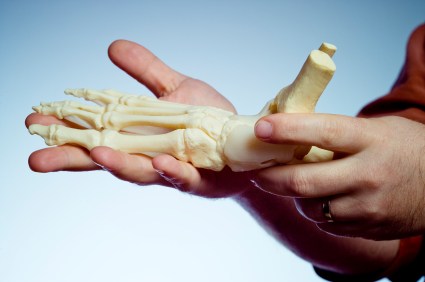Search
Podiatry Care In Nursing Homes? A Necessity For Many Patients With Foot Injuries & Complications
 Foot problems are probably one of the last things many of you associate with nursing homes. Like many things though, foot care is incredibly important when a patient is in pain or has become disabled due to a foot ailment. A podiatrist is a licensed physician who diagnoses and treats foot and ankle conditions, injuries, and diseases. In Illinois and most states, podiatrists must be licensed in order to practice podiatric medicine. The Illinois Division of Professional Regulation licenses Podiatric Physicians. The Illinois Podiatric Medical Practice Act of 1987 (225 ILCS 100) and accompanying Podiatric Administrative Code (Title 68, Chapter VII, Subchapter b, Part 1360) establish and implement the licensing requirements and guidelines for podiatrists. But, not all podiatrists are board certified, but many are, and certification indicates a certain skill and ability level. The American Board of Podiatric Orthopedics and Primary Podiatric Medicine (ABPOPPM) certifies podiatric orthopedics and primary podiatric medicine, and the American Board of Podiatric Surgery (ABPS) certifies foot and ankle surgeons. As you age, common foot and ankle problems include:
Foot problems are probably one of the last things many of you associate with nursing homes. Like many things though, foot care is incredibly important when a patient is in pain or has become disabled due to a foot ailment. A podiatrist is a licensed physician who diagnoses and treats foot and ankle conditions, injuries, and diseases. In Illinois and most states, podiatrists must be licensed in order to practice podiatric medicine. The Illinois Division of Professional Regulation licenses Podiatric Physicians. The Illinois Podiatric Medical Practice Act of 1987 (225 ILCS 100) and accompanying Podiatric Administrative Code (Title 68, Chapter VII, Subchapter b, Part 1360) establish and implement the licensing requirements and guidelines for podiatrists. But, not all podiatrists are board certified, but many are, and certification indicates a certain skill and ability level. The American Board of Podiatric Orthopedics and Primary Podiatric Medicine (ABPOPPM) certifies podiatric orthopedics and primary podiatric medicine, and the American Board of Podiatric Surgery (ABPS) certifies foot and ankle surgeons. As you age, common foot and ankle problems include:
- Corns
- Calluses
- Ingrown toenails
- Bunions
- Heel spurs
- Arch problems
- Ankle and foot injuries
- Deformities
- Infections
- Foot problems associated with diabetes and other diseases including vascular disease
In order to diagnose a foot problem, podiatrists can use x-rays, laboratory tests, physical exams, and patient histories to assess symptoms and risk factors. Podiatrists use a variety of tools to treat foot and ankle problems including:
- Medications
- Physical therapies
- Custom-made shoes
- Corrective shoe inserts (orthoses)
- Surgery
- Casts to set fractures
Podiatry is a useful tool for many nursing home residents because of how common podiatry services are required. Podiatrists can be very important in keeping elderly people and disabled people mobile. An independent practice podiatrist in a nursing home can act without supervision of a nursing home staff member. The podiatrist can perform patient evaluations, design treatment plans, and update service plans as required. Nursing home staff members should still be aware of residents’ podiatry treatments in order to ensure that residents receive all prescribed services. Also, nursing home staff members need to be aware of all signs and symptoms that might indicate any complications, additional medical problems, or worsening of condition. Proper care and maintenance of all foot and ankle problems will dramatically improve the quality of life for nursing home residents who already face reduced mobility because of advanced age and other health problems. If you or a family member have foot or ankle problems, it is important to ask the nursing home whether they have an independent podiatrist at the nursing home or other professional to attend to your needs.
Resources:
American Podiatric Medical Association: About Podiatry Illinois General Assembly: Podiatric Medical Practice Act of 1987
Illinois Administrative Code: Part 1360 Massachusetts Consumer Affairs and Business Regulation: 249 CMR 4.00
 Nursing Home Law News
Nursing Home Law News

